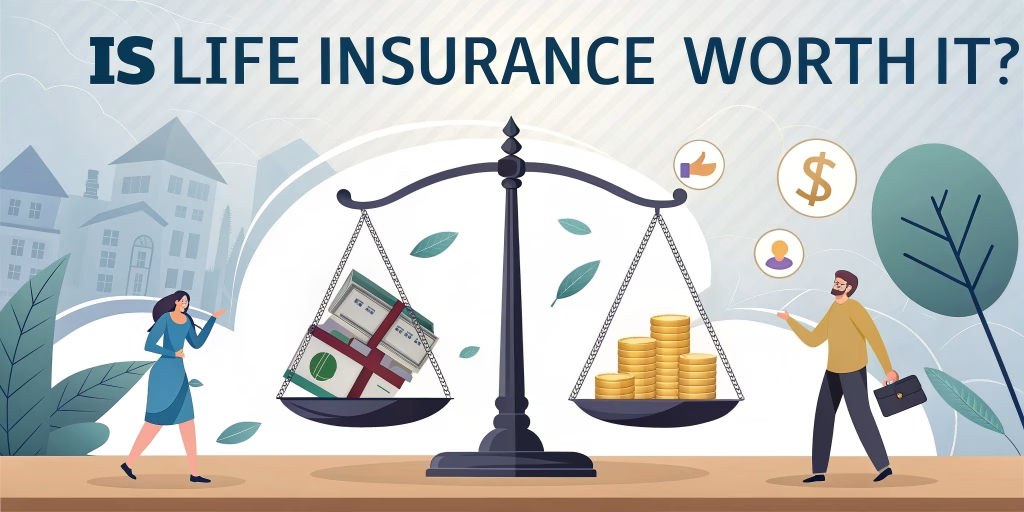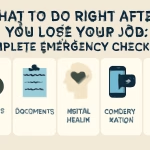Life insurance helps protect families and businesses. It pays out money if you die while others depend on you. Business owners also use it to guard assets and keep operations running. This guide shows what life insurance is, its benefits and drawbacks, and how to choose the right policy.
What Is Life Insurance?
Life insurance is a contract with an insurance company. You pay a fee, called a premium, each month or year. In return, the insurer promises to pay a set amount—called the death benefit—to your loved ones if you pass away. That money can cover bills, debts, and everyday expenses.
Key points:
- Premiums: Your regular payments to keep the policy active.
- Death Benefit: The lump sum paid to your beneficiaries when you die.
- Beneficiaries: The people you name to receive the payout.
Why Consider Life Insurance?
- Income Replacement
If the main earner dies, life insurance can replace lost income. This helps families pay for food, rent, and bills without financial stress.
- Debt Protection
Life insurance can cover loans and debts so your loved ones don’t inherit your financial burdens.
- Peace of Mind
Knowing your family has financial support brings comfort. You can focus on healing, not on bills and debts, if something happens.
- Business Security
Business owners use life insurance to fund buy-sell agreements or replace the value of a key person in the company. This keeps the business running smoothly.
- Legacy Planning
Permanent policies can leave money for your children, charity, or special causes you care about.
Types of Life Insurance
There are two main types: term and permanent.
Term Life Insurance
Term life insurance works like renting a safety net. You pick a term—10, 20, or 30 years. If you die during that time, your family gets the payout. If you outlive the term, coverage ends unless you renew at higher rates.
Benefits of term insurance:
- Affordable: Lower premiums than permanent policies.
- Simple: Easy to understand and buy.
- Flexible: You can choose the term length that fits your needs, such as covering a mortgage or your children’s schooling years.
Example: A 30-year-old buying a 20-year term policy locks in low rates until age 50.
Permanent Life Insurance
Permanent life insurance lasts your whole life, as long as premiums are paid. It combines a death benefit with a cash-value account that grows over time. You can borrow against the cash value or use it in other ways.
Key features of permanent insurance:
- Lifetime Coverage: Your family gets the payout no matter when you die.
- Cash Value: A portion of your premium goes into a savings-like account.
- Loan Option: You can borrow against the cash value, often at low interest.
Drawbacks of permanent insurance:
- Higher Premiums: Costs much more than term insurance.
- Complexity: More rules and fees, such as surrender charges if you cancel early.
Benefits of Life Insurance
Income Replacement
Life insurance can replace lost income if the main earner dies. This steady money helps pay for food, rent, and bills. Families don’t have to scramble for funds during a hard time.
Debt Protection
Policies can cover mortgages, car loans, and credit card balances. Your loved ones won’t inherit these debts or face foreclosure.
Peace of Mind
Knowing you have a financial safety net brings comfort. You and your family can focus on healing and memories instead of bills and stress.
Business Security
Business owners often use life insurance to fund buy-sell agreements. This money helps partners buy out a deceased owner’s share or replace a key employee.
Legacy Planning
Permanent policies build cash value that you can leave to charity or family. Think of it as planting a tree that grows a gift over time.
Drawbacks of Life Insurance
Higher Cost for Permanent Policies
Permanent coverage costs more than term insurance. You pay extra for lifelong protection and the savings feature.
Medical Exams Required
Most insurers ask for health checks. Some people find exams stressful or avoid them, which can delay coverage.
Term Expiry and Renewal
Term policies end after the chosen years. Renewing can cost much more, especially as you age or if your health changes.
Complex Policy Details
Permanent policies have fees, surrender charges, and complex rules. You must read fine print to avoid surprises.
How to Choose the Right Policy
- Evaluate Your Needs
List debts, monthly bills, mortgage, and future costs like college tuition.
- Estimate Coverage Amount
A simple rule is 5–10 times your annual income. Adjust for your unique debts and goals.
- Compare Quotes
Get at least three quotes. Look beyond price—check policy length, riders, and insurer reputation.
- Understand Policy Riders
Riders add benefits, such as:
- Critical illness cover
- Waiver of premium if you become disabled
- Accidental death benefit
- Review Regularly
Life events—marriage, new home, kids—change your needs. Update coverage as your situation evolves.
Common Myths
Myth: “I’m too young for life insurance.”
Fact: Young buyers get lower rates and secure protection early.
Myth: “Life insurance is too expensive.”
Fact: Term policies can cost less than a daily cup of coffee.
Myth: “I don’t need it because I’m healthy.”
Fact: Accidents and illness are unpredictable. Coverage protects against life’s uncertainties.
Getting Started: Step-by-Step
- List Your Finances: Include debts, bills, and future goals.
- Calculate Coverage: Multiply income by 5–10, then refine for your needs.
- Seek Quotes: Contact multiple insurers for price and feature comparisons.
- Ask Questions: Clarify medical exam details, riders, fees, and exclusions.
- Choose and Apply: Complete the application and schedule exams promptly.
Life insurance blends logic and care. Whether you pick a simple term plan or a lifelong permanent policy, coverage can ease financial stress for those you love. Take your time, do your homework, and choose the plan that fits your heart and budget. Stay prepared and protect your family’s future.





